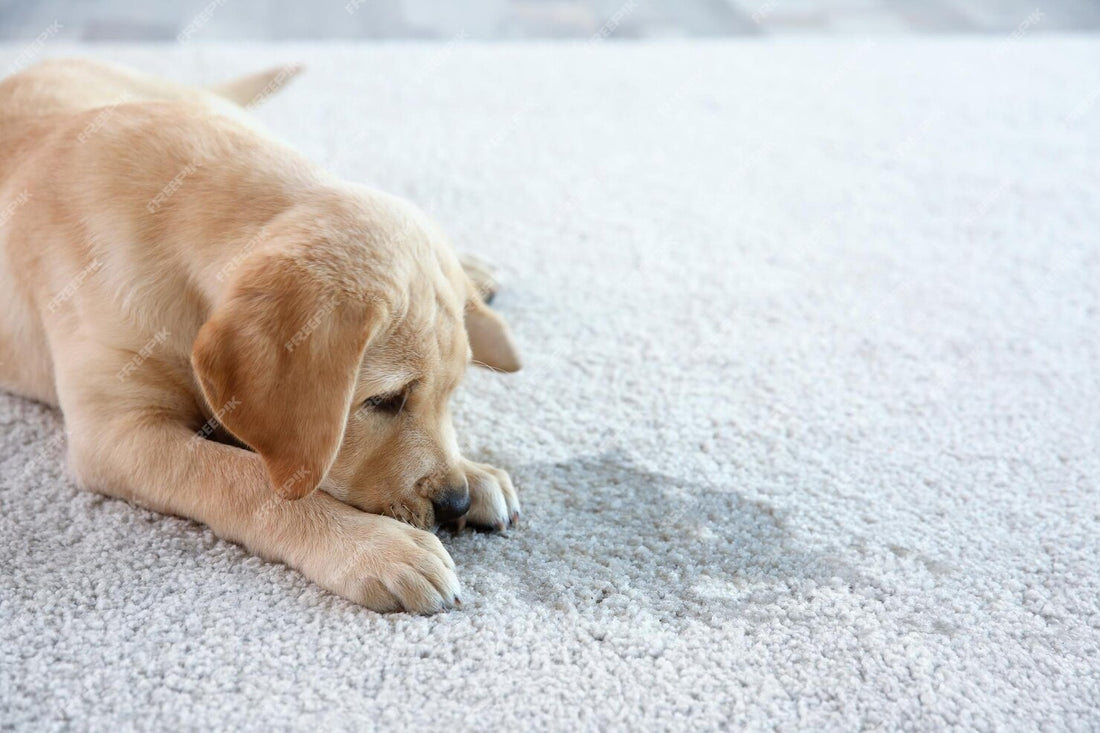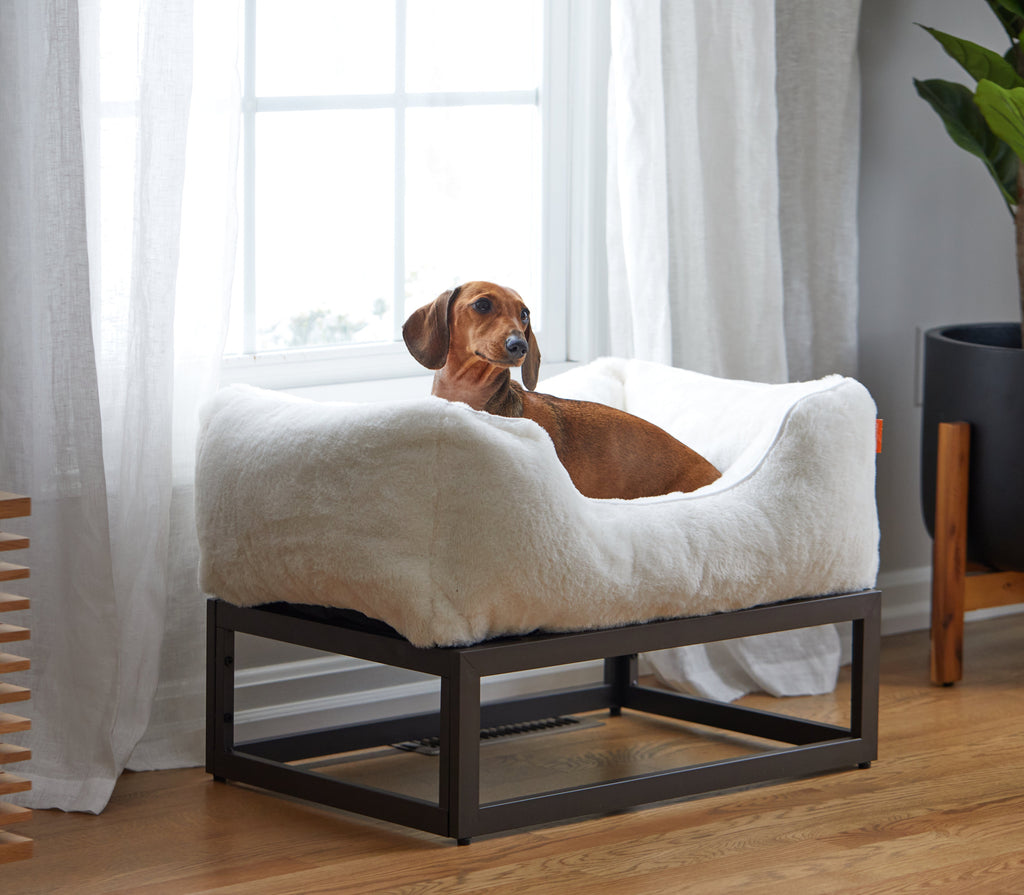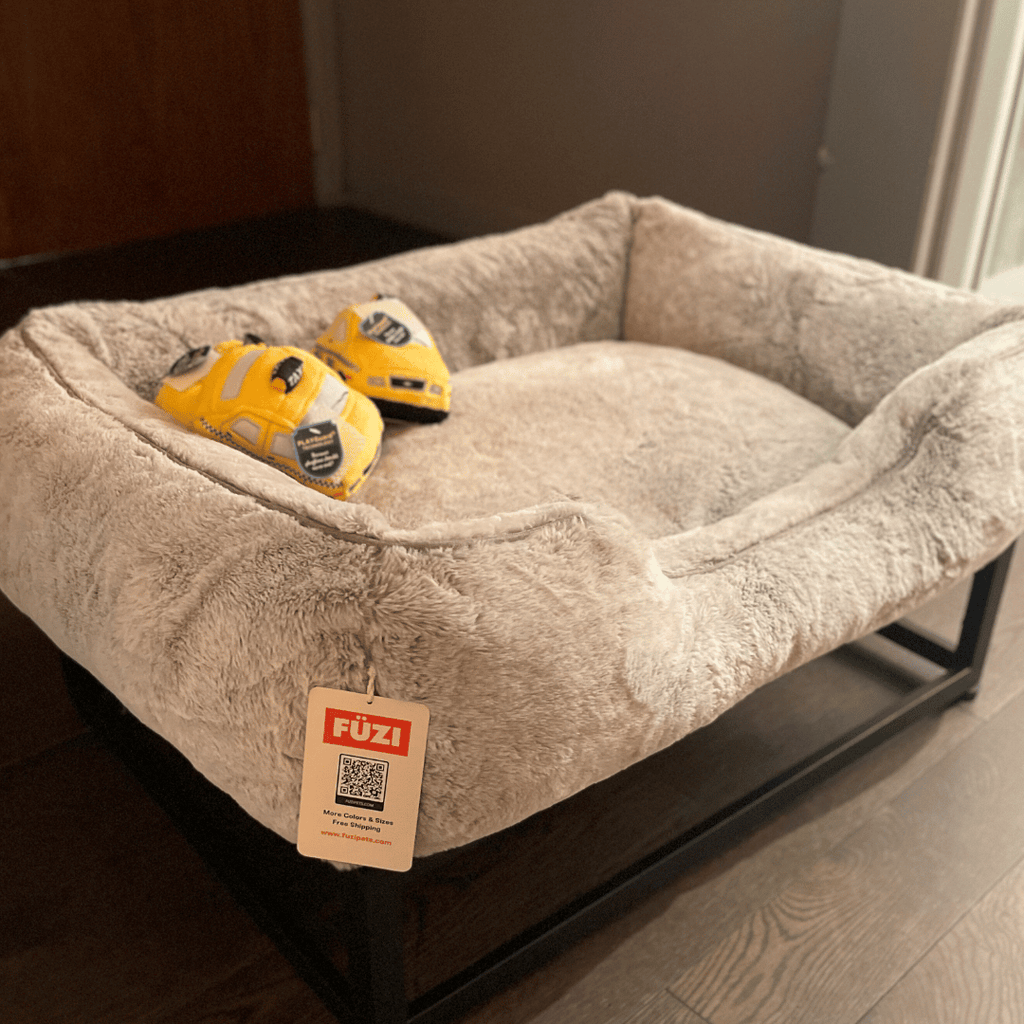Finding that your dog has peed in your bed can be both frustrating and confusing. However, this behavior is not uncommon and can result from a variety of causes, including medical conditions, anxiety, or behavioral issues. Understanding why your dog might engage in this behavior is essential for effectively addressing it and maintaining a harmonious, clean living space. Let’s explore the common causes and solutions to help you manage this behavior.
Understanding Canine Behavior and Urination
Dogs use various behaviors to communicate, and urination can sometimes serve as a signal or message. When your dog pees in an unexpected place—like your bed—it often means they’re trying to convey something, whether it’s related to a health issue, stress, or a need for attention. Recognizing this behavior’s root cause is key for any pet owner who wants to create a peaceful, well-balanced home environment. Here are some primary reasons dogs may urinate on beds and what you can do to address each one.
Common Reasons Dogs Pee in Your Bed
Dogs may pee in your bed for multiple reasons. Here are some of the most common causes:- Medical Issues: Health problems like urinary tract infections (UTIs), bladder stones, or age-related incontinence can lead to unexpected accidents. If this behavior suddenly appears, consult your veterinarian to rule out any medical concerns.
- Anxiety and Stress: Dogs experiencing separation anxiety or stress may urinate inappropriately. Bed-wetting due to anxiety is often triggered by changes in environment, routine, or the presence of new people or animals.
- Territorial Marking: Dogs mark their territory by urinating. If they feel insecure, they may choose the owner’s bed—a spot associated with their human—to reinforce their bond.
- Inadequate Training: Young dogs or those with poor housebreaking training may lack an understanding of appropriate bathroom areas, resulting in bed-wetting.
Medical Causes of Dog Incontinence
If you notice frequent accidents, it could be due to medical conditions that cause pet incontinence issues. Urinary tract infections, diabetes, and bladder stones are a few common medical causes. Older dogs are particularly prone to incontinence, especially during the night. Your vet may suggest specific tests to confirm or rule out these conditions.
Tip: Platform dog beds provide extra support for older dogs, which may help them avoid accidents due to incontinence issues.
Psychological Factors: Anxiety, Stress, and Territorial Marking
Dogs are sensitive to changes in their surroundings. Anxiety, either from separation or external stressors, can lead to behaviors like urinating in bed. Dogs with high anxiety may require a structured routine, positive reinforcement, and sometimes, professional training.
- Separation Anxiety in Dogs: If your dog experiences separation anxiety, they may urinate to relieve their stress or to “mark” their presence in your space.
- Territorial Marking Behavior: Dogs, especially males, often mark to establish dominance. Urinating on your bed could be a way of “protecting” you from other animals or asserting their place in the household hierarchy.
Training and Housebreaking Techniques
Effective dog training and housebreaking can address inappropriate urination. Consistent routines, designated bathroom areas, and positive reinforcement help create good habits. If your dog still struggles, consider these methods:
- Crate Training: Dogs generally avoid soiling their resting area. Crate training can teach dogs to hold their bladder until they are in an appropriate location.
- Designate Bathroom Times and Spots: Take your dog out frequently, especially before bedtime. Establishing a clear schedule reinforces good habits.
- Positive Reinforcement: Reward your dog with treats or praise when they are eliminated in the correct place. This creates a positive association with good behavior.
Tip: Consider elevated dog beds that keep your dog off your sleeping space while providing a designated bed for them. Check out our elevated dog beds.
Solutions for Dog Bed Wetting
Implementing effective solutions can help stop this behavior. Here are some tried-and-true strategies for tackling bed-wetting:
- Behavioral Modification: Address underlying stressors and work on training techniques to discourage inappropriate urination.
- Provide a Comfortable Bed: Make your dog’s sleeping area as inviting as possible. Using a bolster dog bed can offer comfort, which may reduce the urge to sleep (and urinate) in your bed. Explore bolster dog beds.
- Limit Water Intake Before Bedtime: Reducing water intake a couple of hours before bedtime can help manage nighttime urination.
- Seek Veterinary Advice: For dogs with persistent issues, a vet can provide guidance or medication for conditions like incontinence or anxiety.
When to Consult a Professional
If your dog’s bed-wetting behavior persists, it may be time to seek help from a professional. A certified dog trainer or a veterinarian can assist in identifying and addressing underlying issues. Some behaviors, especially those rooted in dog anxiety and stress, benefit from expert intervention.
Conclusion: Building a Healthy Relationship with Your Pet
Addressing why dogs pee in your bed requires patience and understanding. Whether due to medical, psychological, or training issues, resolving these behaviors can improve your relationship with your pet and keep your home cleaner. With consistent care, training, and a comfortable environment, your dog can overcome this behavior and enjoy a happier, healthier life.







